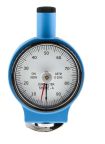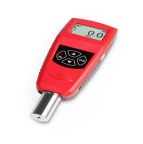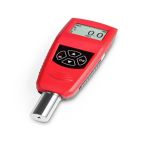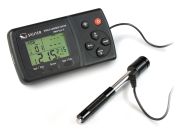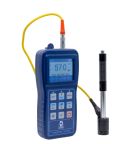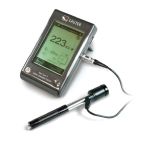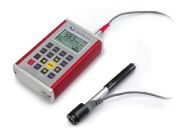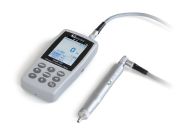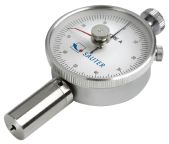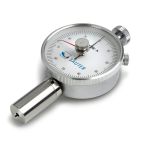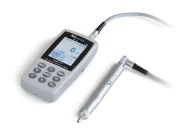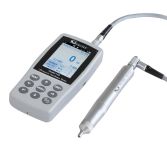Durometers
Durometers are hand-held measuring devices used to measure the hardness of a product. Using the Shore measuring scale you can measure material such as; flexible elastomers, hard rubbers, and rigid plastics. Sometimes there can be confusion when the shore scale overlaps, so for best practice always use the Shore scale set out by industry standards and use the correct durometer gauge.
Types of Durometers
- Analog Durometer
- Digital Durometer
How does a Durometer work?
Durometer uses an indenter and a spring which is calibrated, it measures the depth penetration of the indenter when it's under load which gives you the Shore hardness measurement. In order to achieve accurate readings, it's essential to use the correct durometer.
Features and Benefits
- Durometers scale range from 0-100HA
- Analog or digital readings
- Choice of Shore Hardness Scales
- Easy to operate
Applications
Durometers are commonly found in;
- Silicone molding processes
- Tyre wear testing
- Concrete wet pour/ dry applications
- Skateboard wheel testing
Why choose RS for Durometer?
Here at RS we offer engineers and technicians high-quality Durometers from leading brands such as; Mitutoyo, Sauter, and RS PRO plus technical support when required to ensure you have the ideal durometer solution for your needs.
